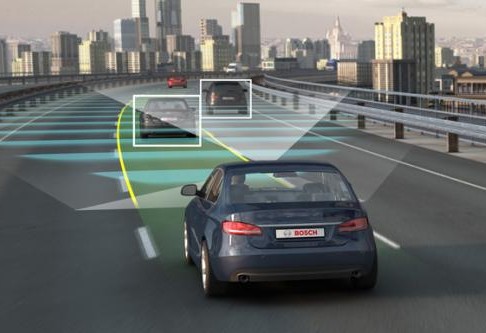The challenge of driverless cars: generating 1GB of data per second
Regimenham predicts that the sensors in driverless cars can prevent them from happening before they are discovered-before they happen, and even plan to repair the car.
Google CEO Sergey Brin said last year that "ordinary people" will be able to use driverless cars in the next five years. Last fall, the California government passed a law that allowed driverless cars to be driven on the road. GM plans to launch a semi-autonomous Cadillac car in 2015.
Regime Nam said, "The number of cars in the world exceeds 1 billion. After the popularity of Google's driverless cars, the amount of data generated will be unimaginable. Google is not the only company developing driverless cars. "Thilo Koslowski, an analyst at market research firm Gartner, said," By 2020, there will be several driverless cars at reasonable prices in the market. "
Regimenham predicts that all car companies may be developing driverless cars. Dutch mobile phone camera manufacturer Mobileye has raised US $ 400 million.

Rigi Mennham published a blog post this week, saying, “Google ’s driverless cars generate a lot of data. It uses these data to determine the direction and speed of travel. It can even judge that someone may be suddenly based on the new cigarette butts detected on the road. Show up '. "
Regimenham said that if a driverless car generates 1GB of data per second, the amount of data generated each year will reach about 2PB (terabytes). He came to this conclusion based on each car traveling 600 hours (2.16 million seconds) per year.
Koslovsky disagrees that every driverless car can generate 1GB of data per second. Although there will be a lot of data transmission between the internal components of driverless cars, these data will not be stored, so these data are only used by the car itself, "Some high-end cars may generate 1GB of data per hour that users may need to analyze, but 1 second of data will not be generated in 1 second. " Compared with the current technology, the amount of data generated by driverless cars will be much larger, which is beyond doubt.
Koslowski said that in the future, cars will be equipped with more infrared sensors, cameras and lidars to detect objects around them. Cars can even communicate with each other, "know" the speed of nearby cars, and react in time when nearby cars suddenly turn or brake. Using computer algorithms and prediction models, cars can even predict whether a car is driving nearby, or even the driving level of other drivers, to prevent injuries.
Koslovsky even predicted that the data generated by the car in the future will be uploaded to the cloud storage system, and the government can use this data to improve driving safety.
Cars equipped with a large number of sensors will be able to detect faults in real time and take measures in advance. For example, the car will promptly notify the driver of possible hidden dangers to prevent a larger failure. Without driver intervention, the car can make an appointment with the repair shop for maintenance.
Reginalnham pointed out that in the future, the data collected by cars "will help auto companies find areas for improvement. The time it takes for new models to go on sale will also be greatly reduced."
Innosilicon is a worldwide one-stop provider of high-speed mixed signal IPs and ASIC customization with leading market shares in Asian-Pacific market for 10 consecutive years. Its IP has enabled billions of SoC's to enter mass production, covering nodes from 180nm to 5nm across the world`s foundries including: GlobalFoundries, TSMC, Samsung, SMIC, UMC and others. Backed by its 14 years of technical expertise in developing cutting-edge IPs and ASIC products, Innosilicon has assisted our valued partners including AMD, Microchip and Microsoft to name but a few, in realizing their product goals.
Innosilicon team is fully devoted to providing the world's most advanced IP and ASIC technologies, and has achieved stellar results. In 2018, Innosilicon was the first in the world to reach mass production of the performance-leading GDDR6 interface in our cryptographic GPU product. In 2019, Innosilicon announced the availability of the HDMI v2.1 IP supporting 4K/8K displays as well as our 32Gbps SerDes PHY. In 2020, we launched the INNOLINK Chiplet which allows massive amounts of low-latency data to pass seamlessly between smaller chips as if they were all on the same bus. With a wide range of performance leading IP in multiple FinFET processes and 22nm planar processes all entering mass production, Innosilicon's remarkable innovation capabilities have been proven in fields such as: high-performance computing, high-bandwidth memory, encrypted computing, AI cloud computing, and low-power IoT.
Innosilicon Mining Machine:Innosilicon T2 Turbo 25T,Innosilicon T3+ 52T,Innosilicon T3 43T,Innosilicon T2 Terminator,Innosilicon T3 39T,Innosilicon T2 Turbo+ 32T
Innosilicon Mining Machine,T3 Pro Miner,T3 Pro Innosilicon,T3 Pro 67T Innosilicon
Shenzhen YLHM Technology Co., Ltd. , https://www.nbapgelectrical.com
